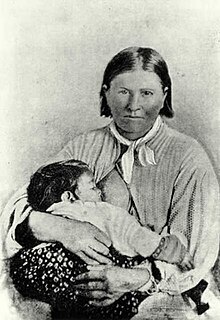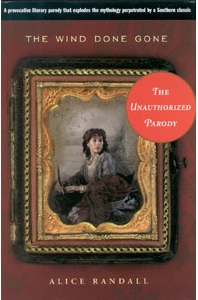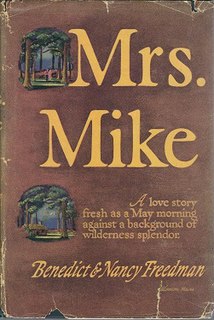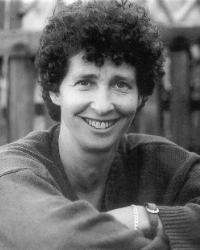
Gone with the Wind is a novel by American writer Margaret Mitchell, first published in 1936. The story is set in Clayton County and Atlanta, both in Georgia, during the American Civil War and Reconstruction Era. It depicts the struggles of young Scarlett O'Hara, the spoiled daughter of a well-to-do plantation owner, who must use every means at her disposal to claw her way out of poverty following Sherman's destructive "March to the Sea". This historical novel features a coming-of-age story, with the title taken from the poem “Non Sum Qualis eram Bonae Sub Regno Cynarae”, written by Ernest Dowson.

Patrick O'Brian, CBE, born Richard Patrick Russ, was an English novelist and translator, best known for his Aubrey–Maturin series of sea novels set in the Royal Navy during the Napoleonic Wars, and centred on the friendship of the English naval captain Jack Aubrey and the Irish–Catalan physician Stephen Maturin. The 20-novel series, the first of which is Master and Commander, is known for its well-researched and highly detailed portrayal of early 19th-century life, as well as its authentic and evocative language. A partially finished 21st novel in the series was published posthumously containing facing pages of handwriting and typescript.

William Ormond Mitchell, better known as W. O. Mitchell was a Canadian writer and broadcaster. His "best-loved" novel is Who Has Seen the Wind (1947), which portrays life on the Canadian Prairies and sold almost a million copies in Canada. As a broadcaster, he is known for his radio series Jake and the Kid, which aired on CBC Radio between 1950 and 1956 and was also about life on the Prairies.
Patrick Frank Friesen is a Canadian author. He has written many works, from poetry to stage plays. He began his works in 1970, writing books of poetry. This Canadian poet, who was born in Steinbach, Manitoba, studied at the University of Manitoba. While there, he received a Bachelor of Arts (Honours) degree and a teaching certificate. After being a resident of Winnipeg for thirty years, Friesen now lives in Victoria, BC and is a teacher of creative writing at the University of Victoria. Friesen often collaborates with dancers, choreographers, composers and musicians. Along with writing poetry, he also writes songs for musicians and texts to Improv Piano. Friesen grew up in a small religious community, and comes from a Mennonite background, but he broke away from that small community physically and spiritually at a young age. His Mennonite upbringing still influences his work such as, “The Shunning,” which is about the persecution of a Mennonite farmer questioning his religion. The winner of Manitoba Book of the Year for his work on “Blasphemer’s Wheel," Friesen was also the runner up in Milton Acorn’s People’s Poetry Awards. In a 2004 interview Friesen has noted that, “Being Mennonite in background had all kinds of effects on [his] content.” In 1997, his work, “A Broken Bowl,” was short listed for the Governor General’s Award.

Katie Scarlett O'Hara is a fictional character and the protagonist in Margaret Mitchell's 1936 novel Gone with the Wind and in the 1939 film of the same name, where she is portrayed by Vivien Leigh. She also is the main character in the 1970 musical Scarlett and the 1991 book Scarlett, a sequel to Gone with the Wind that was written by Alexandra Ripley and adapted for a television mini-series in 1994. During early drafts of the original novel, Mitchell referred to her heroine as "Pansy," and did not decide on the name "Scarlett" until just before the novel went to print.

Cynthia Ann Parker, also known as Naduah, was an American who was kidnapped in 1836, around age 10, by a Comanche war band which had attacked her family's settlement. Her Comanche name means "someone found".

The Wind Done Gone (2001) is the first novel written by Alice Randall. It is a bestselling historical novel that tells an alternative account of the story in the American novel Gone with the Wind (1936) by Margaret Mitchell. While the story of Gone with the Wind focuses on the life of the daughter of a wealthy slave owner, Scarlett O'Hara, The Wind Done Gone tells the story of the life of one of her slaves, Cynara, during the same time period and events.
Walter "Wat" Dumaux Edmonds was an American writer best known for historical novels. One of them, Drums Along the Mohawk (1936), was adapted as a Technicolor feature film in 1939, directed by John Ford and starring Henry Fonda and Claudette Colbert.

Allan Winton King,, was a Canadian film director.

Prairie Wind is the 26th studio album by Canadian / American musician Neil Young, released on September 27, 2005. After dalliances with 1960s soul music and rock opera, Prairie Wind featured an acoustic-based sound reminiscent of his earlier commercially successful albums Harvest and Harvest Moon. The album was in part inspired by the illness and recent death of his father, Canadian sportswriter and novelist Scott Young, and the album is dedicated in part to the elder Young.

The Stone Angel is a novel by Canadian writer Margaret Laurence. First published in 1964 by McClelland and Stewart, it is perhaps the best-known of Laurence's series of five novels set in the fictitious town of Manawaka, Manitoba. In parallel narratives set in the past and the present-day, The Stone Angel tells the story of Hagar Currie Shipley. In the present, 90-year-old Hagar struggles against being put in a nursing home, which she sees as a symbol of death. This narrative alternates with Hagar looking back at her life.
At the Hotel is a Canadian drama-comedy-musical mini-series concerning the goings-on at an illustrious Montreal hotel, known for its favourable treatment of struggling artists. Created by Ken Finkleman and produced by One Hundred Percent Television, the series aired on CBC Television in 2006. The music is composed by Robert Carli. This is the only Ken Finkleman production in which he did not cast himself as a character. He does however make a very brief on-screen appearance as a member of the crew shooting a music video in the hotel.

Look Homeward, Angel: A Story of the Buried Life is a 1929 novel by Thomas Wolfe. It is Wolfe's first novel, and is considered a highly autobiographical American coming-of-age story. The character of Eugene Gant is generally believed to be a depiction of Wolfe himself. The novel briefly recounts Eugene's father's early life, but primarily covers the span of time from Eugene's birth in 1900 to his definitive departure from home at the age of 19. The setting is a fictionalization of his home town of Asheville, North Carolina, called Altamont, Catawba in the novel.

Zarqa Nawaz is a Canadian creator and producer for film and television, a published author, public speaker, journalist, and former broadcaster.
Eldon Davis Rathburn was a Canadian film composer who scored over 250 films during his thirty-year tenure as a staff composer at the National Film Board of Canada. Known as "the dean of Canadian film composers", Rathburn composed music for documentaries, short films, as well as such feature films as Drylanders (1963), Nobody Waved Good-bye (1964), Waiting for Caroline (1969), Cold Journey (1975), and Who Has Seen the Wind (1977). Rathburn was the subject of a 1995 NFB documentary by Louis Hone titled Eldon Rathburn: They Shoot... He Scores.

Mrs. Mike, the Story of Katherine Mary Flannigan is a novel by Benedict and Nancy Freedman set in the Canadian wilderness during the early 1900s. Considered by some a young-adult classic, Mrs. Mike was initially serialized in the Atlantic Monthly and was the March 1947 selection of the Literary Guild. It was a critical and popular success, with 27 non-US editions, and it was published as an Armed Services Edition for U.S. servicemen abroad. The work combines the landscape and hardships of the Canadian North with the love story of Royal Canadian Mounted Police Sergeant Mike Flannigan and the young Katherine Mary O'Fallon, newly arrived from Boston, Massachusetts.
Anne Marriott was a Canadian writer who won the Governor General's Award for her book Calling Adventurers! "She was renowned especially for the narrative poem The Wind, Our Enemy," which she wrote while still in her twenties.

Nancy Richler was a Canadian novelist. Her novels won two international awards and were shortlisted for three others; Richler was also shortlisted for the Canadian Booksellers Association Author of the Year award in 2013.
Who Has Seen the Wind may refer to:
Who Has Seen the Wind is a 1977 Canadian drama film directed by Allan King and written by Patricia Watson. The film is an adaptation of W. O. Mitchell's influential novel Who Has Seen the Wind. It was the first narrative feature film ever directed by King, who was previously known primarily as a documentary filmmaker.













